Tokyo Tech offers students a broad range of study abroad programs. With options that include short-term research and skill development programs, cultural and academic exchange programs, seasonal programs, and internship programs, as well as semester and academic year abroad programs with tuition waivers, each student may select the opportunity best suited for their individual needs. In addition, the Institute recognizes credits acquired overseas according to prescribed conditions.
On May 22, students who participated in the Engineering Schools International Exchange Program, TAIST-Tokyo Tech program, Tokyo Tech-MIT Exchange Program, Vulcanus in Europe program, and university-wide exchange programs shared their study aboard experiences at a joint debriefing session online.
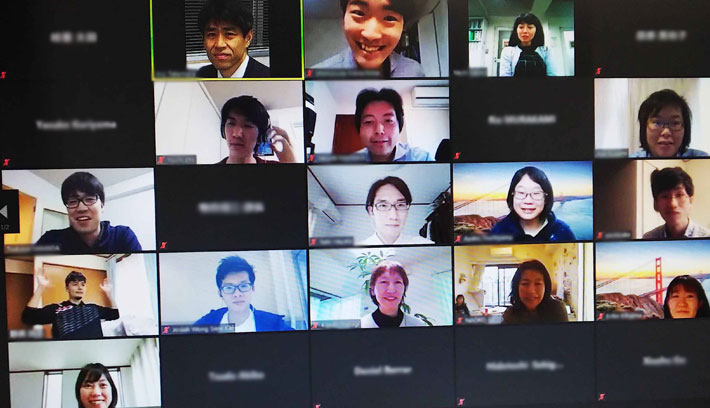
Study abroad programs attended by presenters
Engineering Schools International Exchange Program
Tokyo Tech's School of Engineering, School of Materials and Chemical Technology, and School of Environment and Society jointly operate research-oriented programs designed to encourage engineering students to become internationally active in the future. The programs provide opportunities not only to be involved in researching a topic of their choice under faculty supervision, but also to experience local cultures and develop friendships across borders.
University-wide exchange programs
As part of international exchange activities for improving language proficiency, taking courses in related fields, and conducting research supervised by a host professor, Tokyo Tech encourages students to study at overseas universities under tuition waiver agreements. There are over 70 partner universities around world from which students can choose one that suits their needs.
TAIST-Tokyo Tech
Tokyo Tech expanded to Thailand in the form of TAIST-Tokyo Tech (hereinafter TAIST), the first Thailand Advanced Institute of Science and Technology established in collaboration with Thai institutions. Tokyo Tech is part of a joint graduate education program based on the strong ties between the two countries. TAIST has taken the initiative in creating solid networks in Asia.
Tokyo Tech - MIT Student Exchange Program
Tokyo Tech's School of Engineering, School of Materials and Chemical Technology, and School of Environment and Society launched a unique student exchange agreement with tuition waivers and a credit transfer system with the Department of Nuclear Science and Engineering (NSE) at Massachusetts Institute of Technology (MIT) in 2019. Participating students are in the final year of their bachelor course. MIT students stay at Tokyo Tech in the 3rd and 4th quarters, while Tokyo Tech students do a fall semester at MIT. One required subject is mandatory, but students can join whatever courses they like and join a laboratory where they conduct research under the supervision of renowned faculty members.
Vulcanus in Europe
Vulcanus in Europe is an internship program that aims to promote industrial cooperation between the European Union and Japan. Under this program, Japanese nationals who major in science or engineering at Japanese universities, either at the undergraduate or graduate level, are sent to Europe. The overseas experience starts in April and lasts one year, with four months of language training and eight months of corporate on-the-job training. Scholarships are available.
The nine student presenters at the May debriefing session were as follows.
Testimonials from participating students
Taiki Hayata at University of Moratuwa
As I had passed the halfway point in my master’s program, I decided to study abroad, which seemed late compared to other students. However, I spent a half semester preparing and then studied abroad for four months. Broadening my view of the world was one of the biggest reasons to study abroad. On campus, there were many students from all over the world, and by communicating with them I came into contact with various cultures and customs even though I was in Sri Lanka. I accomplished most of my aims for studying abroad while joining the international student community.
In my research, I learned about advances in different research fields and the research policy in the country by communicating with my host supervisor and visiting professors. I had a meeting once every two weeks, during which I reported my research progress and received advice from my supervisor. They do not have a lab system like Tokyo Tech, so I worked in a drafting room or a reading room. My research required fieldwork so I alternated between one-week trips and working on campus. Having to conduct surveys in unknown territory, I made a systematic plan and paid careful attention not to miss any survey items.
Overall, I accomplished almost all the things that I wanted to during this study abroad trip. Furthermore, through this stay, I realized my place in the world. In order to take on my master’s dissertation from now, I will consider the future direction of my research based on the viewpoints I gained through this study abroad program.
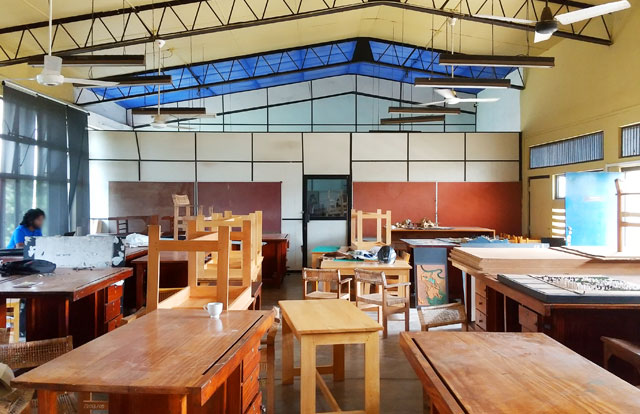
Drafting room at University of Moratuwa
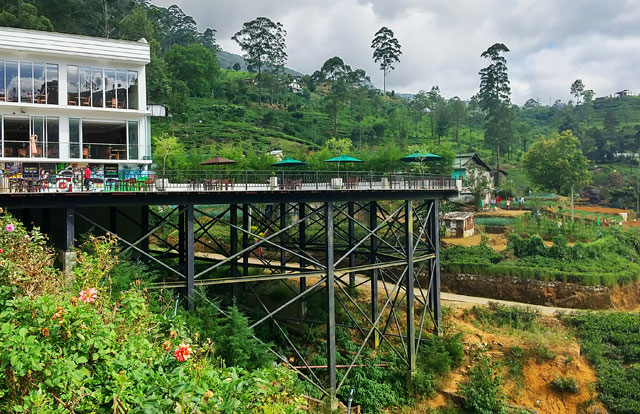
Tea garden and cafe in Sri Lanka
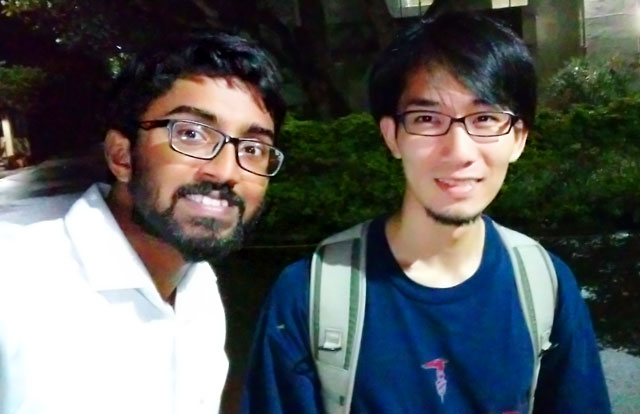
Hayata (right) and Salika who joined
Tokyo Tech AOTULE Summer Program 2019
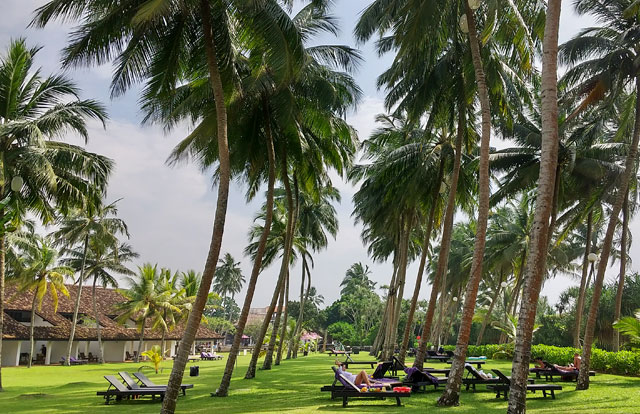
Resort area Hayata visited for his research
Yaoki Sato at Massachusetts Institute of Technology (MIT)
Lectures at MIT are tough indeed. It is mandatory to attend five hours of classes and do seven hours of assignments a week per subject. Additionally, I had a pile of reading up to do beforehand. To my astonishment, MIT students usually take five or six subjects. I was overwhelmed to take three subjects and conduct research work, but the gained knowledge will be worth it for sure. Gaining knowledge and persevering in whatever I did gave me confidence.
The most important thing while you are participating in the study abroad program is to cherish your curiosity. At MIT, you will enjoy many learning opportunities, not only in your specialized field but in cultural activities. Furthermore, MIT has an air to cheer up students, and there are many chances for learning everywhere in town. In order to make use of these opportunities, curiosity is indispensable. Going outside and acting according to your curiosity rather than being sequestered in your room will lead to fruitful days. Fortunately, Boston is ideal for cultural activities. There are art museums and science museums near the campus and spots to learn American history in the heart of the town. Learn as much as possible and follow your interests, and your study abroad will be worthwhile.
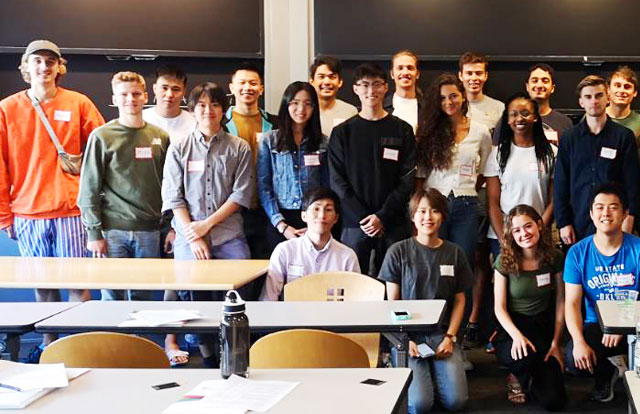
Sato (far left in front row)
during the New Semester Orientation
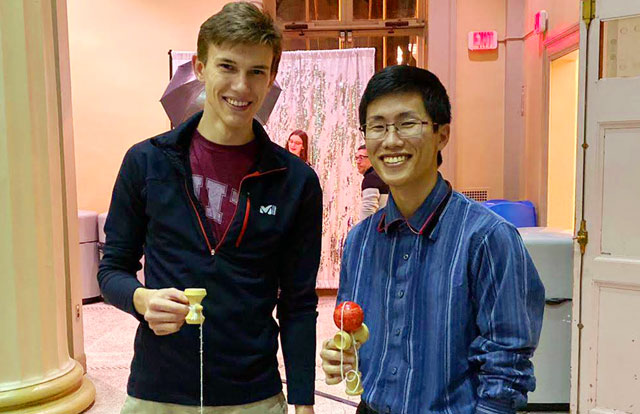
Sato (right) playing with kendama toy
at Japanese Association of MIT (JAM) event
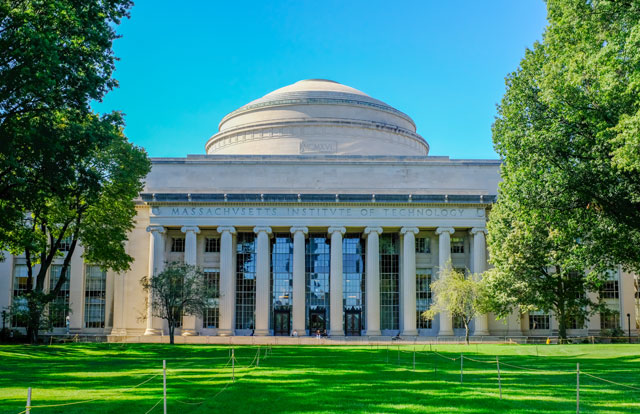
Symbolic Great Dome at MIT
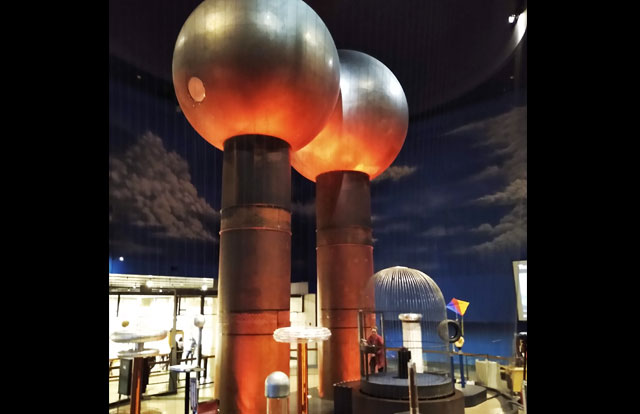
Museum of Science in Boston
. Any information published on this site will be valid in relation to Science Tokyo.











